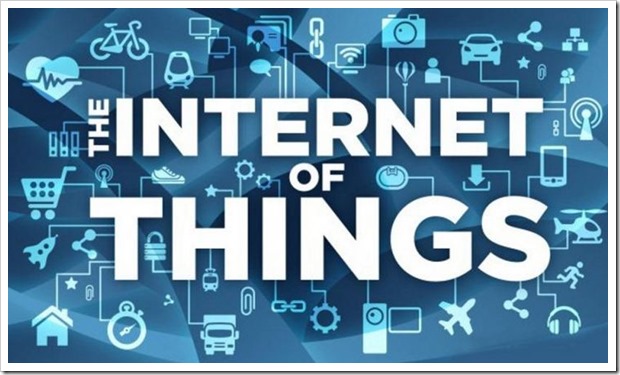Stephanie Ewelu: The AI Queen Transforming Digital Technology Into Global Impact

While navigating the landscape of cutting-edge AI innovations, we came across the public professional profile of Stephanie Ewelu, and it quickly became clear that she is not only a pioneering AI expert but also a gem to watch in the digital technology sector. Stephanie’s work stands out for its focus on ethical, inclusive, and transformative AI solutions that address some of the most pressing global challenges. Her groundbreaking contributions span healthcare, space exploration, and education, demonstrating her ability to harness the power of AI for human good.
Revolutionizing Healthcare with Ethical AI
Stephanie Ewelu’s work in healthcare represents a fusion of cutting-edge AI research and real-world impact. One of her most notable published works appeared in the Journal of Medical Internet Research (JMIR), where she conducted an in-depth study on the adoption of mobile health (mHealth) applications for managing chronic conditions such as diabetes. By using machine learning regression models, she identified the key factors that drive sustained usage and success of mHealth tools. The study revealed that usability, credibility of developers, and the provision of consistent updates were crucial for user engagement and long-term adherence to diabetes management applications. This insight is critical as the world grapples with an ever-growing diabetes epidemic that affects over 460 million people globally, many of whom live in resource-constrained areas with limited access to healthcare.
Stephanie’s research serves as a cornerstone for improving the effectiveness of digital health solutions, demonstrating how AI can create tools that are not only technologically advanced but also user-centric and accessible. Through her involvement with the NHS Digital Academy, she continues to expand the boundaries of ethical AI, integrating it into public health systems to ensure these digital tools are deployed equitably across diverse communities. Her leadership in embedding ethical frameworks into the development of AI-powered healthcare solutions is helping shape the future of public health and patient care.
Innovations in Space Exploration: AI-Powered Astronaut Assistant
In space exploration, Stephanie’s contributions are nothing short of transformative. One of her standout achievements is the development of the AI-powered Astronaut Assistant, an autonomous system designed to assist astronauts during high-stakes missions, where real-time decision-making is critical, and communication with Earth is delayed by up to 20 minutes. The AI-powered assistant leverages advanced natural language processing (NLP) and predictive analytics to provide astronauts with on-the-spot support, enabling them to address issues quickly and safely.
For example, during a Mars mission, if an astronaut faces a life-threatening situation such as a failure in their life-support system, the AI-powered assistant can immediately analyze the issue, cross-reference data, and suggest corrective actions without waiting for communication with mission control. Similarly, in a medical crisis like a fracture in zero gravity, the assistant can provide step-by-step guidance based on its expansive medical knowledge base, ensuring astronaut safety and mission success. This breakthrough represents a leap forward in autonomous AI and is a critical step in supporting long-duration space missions, where reliable, immediate assistance is needed in remote and high-risk environments.
Stephanie’s work in this domain positions her as a leader in the development of AI-powered technologies for space exploration, showcasing her ability to push the boundaries of what AI can achieve beyond Earth. Her role in advancing autonomous technologies has implications for both governmental space agencies and private players like SpaceX, whose ambitions to explore the Moon, Mars, and beyond require reliable, intelligent systems that can support human missions far from Earth.
Empowering Education Through AI-Driven Accessibility
Stephanie’s work in education further solidifies her reputation as an advocate for equitable access to technology. Through her involvement in projects like Rockae, an AI-powered quiz generator, she is helping to democratize education by providing personalized learning experiences for students across various academic levels. Rockae adapts to the individual needs of each student, offering tailored quizzes and learning materials that make complex subjects like mathematics, biology, and chemistry more approachable and easier to understand. This initiative aims to bridge the gap in educational inequality, ensuring that every student, regardless of their background or resources, has access to high-quality, adaptive learning tools.
However, it is through the JOS initiative, focused on educating kids in AI, aerospace, and robotics, which she proposed to the founder, that her vision for an inclusive education system truly comes to life. As a volunteer with JOS, she is at the forefront of developing curricula and leading hands-on DIY projects, empowering African children with the skills and knowledge to thrive in STEM fields and shape the future of innovation on the continent. The initiative aims to teach millions of children, particularly those in underserved communities, how to work with robotics and drone technology. By making these advanced skills accessible to young learners, JOS is opening up opportunities for them to pursue careers in STEM fields, which are traditionally underrepresented by individuals from diverse and marginalized backgrounds. Stephanie’s efforts through JOS are not just about teaching technology but about reshaping the future workforce, ensuring that all students have the tools they need to succeed in a rapidly changing digital world.
Advocating for Ethical AI Development
A consistent theme throughout Stephanie’s career is her unwavering commitment to the ethical development of AI. As an Arm Developer Ambassador, she has become an influential voice in the tech industry, advocating for AI systems that are sustainable, accessible, and developed with a focus on long-term social impact. Her contributions to AI governance, public policy discussions, and industry forums emphasize the need for AI that amplifies human potential, rather than diminishing it.
Stephanie’s position in the digital technology sector extends beyond technical expertise to thought leadership on the ethical dimensions of AI. Her work with the NHS Digital Academy to integrate ethical AI frameworks into healthcare further showcases her role as a key advocate for responsible AI implementation. Her insistence on the need for transparency, fairness, and inclusivity in AI systems is shaping how organizations and governments think about the future of technology, ensuring that AI-driven innovations are developed in a way that benefits all individuals and communities, regardless of their geographic location or socioeconomic status.
Co-Authored Research: Introducing Groundbreaking AI Frameworks
Further cementing her position as an AI thought leader, Stephanie co-authored a significant paper titled, “BNAI, NO-TOKEN, and MIND-UNITY: Pillars of a Systemic Revolution in Artificial Intelligence,” in collaboration with another top leading AI expert. This paper, which was published on Zenodo, introduces three novel AI frameworks that have the potential to revolutionize how AI systems are built and function:
BNAI (Brain Neural Artificial Intelligence) – This framework encodes AI’s “digital DNA” for secure evolution and traceability, enhancing the safety and transparency of AI systems as they evolve.
READ ALSO: Tribunal affirms Gov. Okpebholo as duly elected Edo state Governor
NO-TOKEN – A groundbreaking methodology that eliminates traditional tokenization, reducing computational latency without compromising or even enhancing accuracy.
MIND-UNITY – An autonomous decision-making module that allows AI systems to generate tasks on their own while operating within ethical and security-conscious parameters.
The research includes preliminary experiments, such as sentiment analysis on the SST-2 dataset, which demonstrated significant improvements in efficiency and reduced computational latency. By introducing these innovative frameworks, Stephanie and her collaborator are laying the groundwork for a more secure, efficient, and ethically sound future in AI development. The research is openly accessible, further emphasizing Stephanie’s commitment to making advanced AI knowledge available to the broader research community.
Published Works and Thought Leadership
Stephanie’s published works further cement her influence in the digital technology sector. In addition to her influential research published in the Journal of Medical Internet Research (JMIR), she has contributed to numerous thought leadership pieces in leading tech publications. Her work on AI and healthcare has been widely referenced, offering actionable insights into the adoption and effectiveness of digital health solutions. Furthermore, her leadership in the development of autonomous systems for space exploration has been highlighted in various space and technology publications, underscoring her ability to apply AI in groundbreaking, high-risk industries.
Her role as a thought leader extends to public advocacy as well. Stephanie’s articles on the ethical implications of AI have positioned her as a key voice in the ongoing conversations about how AI can be used responsibly. Her advocacy for AI that prioritizes human values—such as transparency, accountability, and inclusivity—has influenced policymakers, business leaders, and developers alike, pushing the industry toward more responsible and ethical practices.
Conclusion: A Legacy in the Making
Stephanie Ewelu’s work exemplifies a future where AI serves as a powerful tool for equity, accessibility, and social good. Whether it is through her research on improving healthcare access, her innovations in space technology, or her efforts to empower future generations through education, Stephanie’s contributions are paving the way for a more inclusive and ethical technological landscape. Her continued advocacy for ethical AI, coupled with her technical innovations, ensures that her influence will not only be felt in the sectors she directly works in but will also inspire a new generation of technologists to develop AI that benefits humanity at large.
As AI continues to evolve and permeate every facet of society, Stephanie’s legacy will serve as a beacon of responsible innovation, one that reminds the tech world that technology, at its best, should always serve the greater good.








